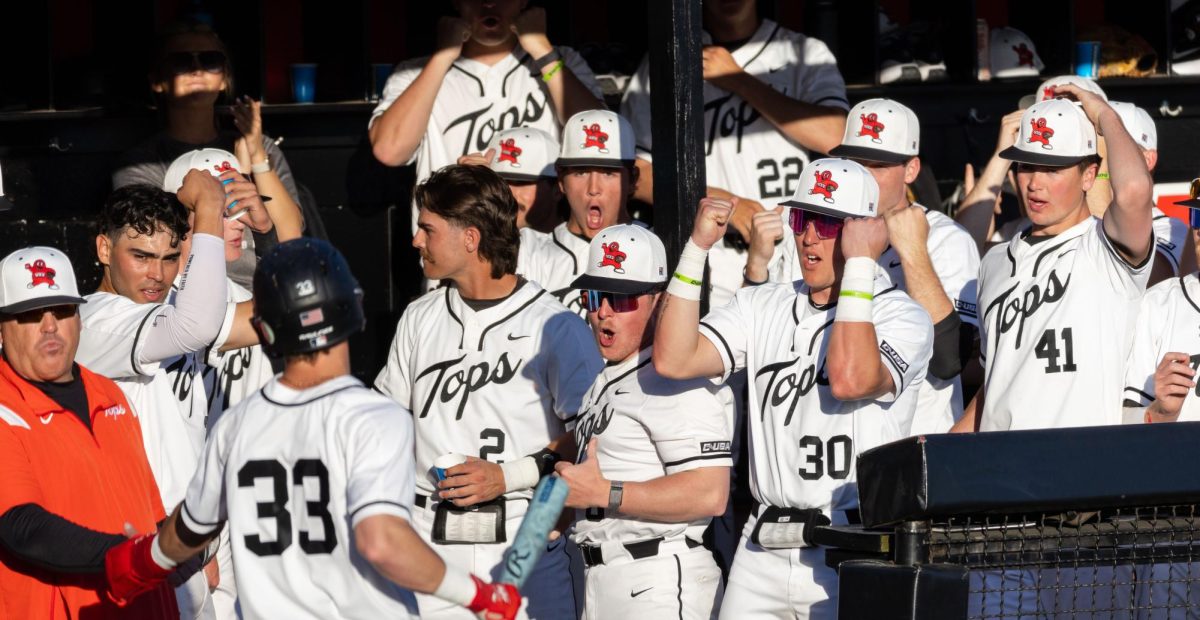Summer heat affected WKU employees’ conditions
September 13, 2011
WKU saved about $160,000 this summer after implementing new energy-usage policies, but it has left some questioning if the money was worth it.
WKU’s new summer energy program included consolidating classrooms to keep high energy use limited to the most efficient buildings, shifting working hours for faculty and reducing energy spikes during the peak hours of 1-7 p.m.
History Department Head Robert Dietle said Cherry Hall’s air conditioning usually turned off at 2 p.m. to avoid energy spikes during those peak hours — a time which energy usage costs WKU five times as much on energy bills.
“This was not a very comfortable building to be in this summer,” he said.
Patricia Minter, associate professor and the Faculty Regent, said Dietle even ordered fans to cope with the heat.
“It was so hot this summer that (Dietle) ordered from facilities these two huge, 5-foot-tall construction fans that sat in the hall just trying to move the air around,” she said. “It sounded like there’s an airplane getting ready to take off, so you can’t hear yourself think.”
Dietle said Minter was not alone in her discomfort.
“I got a few complaints, but people sort of got the message that Western didn’t want them in their offices, so they didn’t come in,” Dietle said. “A lot of faculty have materials at home, so they just worked there.”
But not every WKU employee had that luxury.
Building services attendants worked their usual shifts through the heat this summer, with high temperatures routinely reaching into the 100s.
Facilities Management director Charlie Jones said he acknowledged that the conditions weren’t great for BSAs this summer, but WKU equipped workers for the heat by including frozen neck bands to keep body temperatures low and an increased amount of time for breaks and hydration.
“Part of what you sign up for to be a BSA is to work inclement weather at times — the same way with our grounds worker as well as our maintenance staff,” Jones said. “They have to service an air conditioner when it’s hot, and we work very closely on heat safety.
“There are some people that don’t agree with that approach, but you have to get work done in the available times throughout the summer.”
Jones also said those available times do fall in peak hours when temperatures are high and the air conditioning is off, but that the odd hours come with the job.
“It seems logical to try to move people to shifts where the buildings aren’t used as much,” he said. “So they can more efficiently clean the classroom or the marker board or the professor’s office rather than having people actually walking through the building at the same time that they are trying to wax the floor.”
There are a few specialty situations around campus, but most BSAs are scheduled to work from 4-11 a.m., 3-11 p.m. or 9 p.m.-5 a.m. Jones said.
Tammy Price, building services team leader, could not be reached for comment.
Dietle said even with the precautions, buildings such as Cherry Hall must have been difficult for BSAs to work in this summer.
“They must be miserable because they came in late at night after it’s been off for hours, and obviously they don’t turn the air conditioning back on until about the time day faculty and staff are showing up,” he said. “I assume it’s brutal for them.”

















